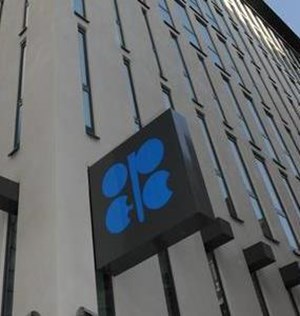OPEC’s spare oil production capacity could help market amidst Israel-Hamas conflict
(Bloomberg) – Global oil markets may be facing heightened risk from tumult in the Middle East, but they’re better equipped to weather the shock than during previous crises.
Having slashed crude output this year to prop up prices, Saudi Arabia and its OPEC+ allies are left with a healthy reserve of spare oil production capacity. Outside of the Covid pandemic — when lockdowns caused demand to slump — it’s the biggest buffer in more than a decade.
OPEC, primarily Saudi Arabia and the United Arab Emirates, will be sitting on more than 4 MMbpd of idle capacity this year and next, about 4% of global supplies, according to the U.S. Energy Information Administration.
That’s almost double the cushion they held during other regional crisis, such as when the kingdom’s Abqaiq processing facility was bombarded by Iran in 2019, or when Islamic State fighters captured huge swathes of Iraq in 2014. It’s almost 20% more than when Libyan oil production collapsed during the uprising against Moammar Al Qaddafi in 2011.
After initially surging more than 5% in the wake of Hamas’s weekend attack on Israel, crude prices have since subsided back below $88 a bbl in London. That’s largely due to the lack of immediate threat to oil supplies, but it may also reflect the reassuring impact of OPEC’s spare oil.
Whether OPEC and its partners could ultimately dip into that trove isn’t clear. Riyadh has chosen to squeeze supplies so far this year, pushing prices to almost $100 a bbl last month. The deciding factor may be whether Iran, the main backer of Hamas, faces tighter U.S. sanctions on its oil exports as a result of the current crisis.



